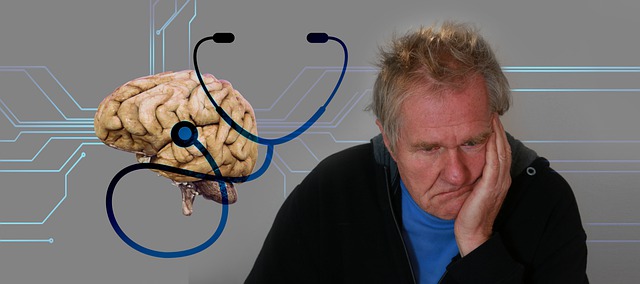The six stages of Alzheimer's disease
 |
| The six stages of Alzheimer's disease |
Alzheimer's disease gets worse over time. Experts have developed “stages” to describe how a person's abilities change from their normal function due to late-stage Alzheimer's disease.
Stage 1: Moderately severe cognitive decline
Stage 2: Severe cognitive decline
Stage 3: Very severe cognitive decline
Phase 4: No disabilities
Stage 5: Very mild cognitive decline
Stage 6: Mild cognitive decline
The steps described below provide a general idea of how skills change during the course of the disease. The symptoms of Alzheimer's disease can vary greatly, and not everyone will experience the same symptoms or a course at the same rate.
This seven-stage framework is based on a system developed by Barry Reisberg, M.D., clinical director of the New York University School of Medicine's Dementia Research Center.
Stage 1: Very severe cognitive decline (severe or late stage Alzheimer's disease)
In the final stage of this disease, the person loses the ability to respond to his environment, to carry on a conversation and, later, to control movements. The individual can still use words or phrases.
At this stage, a lot of help is needed with daily personal care, including eating or going to the bathroom. The ability to smile, sit unsupported, and hold one's head may be lost. Reflexes become abnormal. The muscles become stiff. Swallowing becomes impaired.
Stage 2: Severe cognitive decline (moderately severe or mid-stage Alzheimer's disease)
Memory continues to deteriorate, personality changes may take place; people need a lot of help in carrying out daily activities. At this stage, such individuals may:
Losing awareness of recent experiences and their surroundings
Remembering your own name, but having difficulty remembering your personal history
Distinguish known and unknown faces, but have difficulty remembering the name of a spouse or person who cares for them
Need help dressing properly and, if not in control, make mistakes such as wearing pajamas over day clothes or wearing shoes on the wrong foot
Experiencing major changes in sleep patterns - sleeping during the day and becoming restless at night
Need help in managing certain personal hygiene details (for example, flushing the toilet, cleaning yourself with toilet paper or disposing of it properly)
Having more and more frequent problems in controlling the bladder or bowel
Experiencing noticeable changes in personality and behavior, including suspiciousness and delusions (such as believing the person assisting you is a cheat) or uncontrollable or repetitive behavior, such as wringing hands or shredding paper towels
Tend to wander or get lost
Stage 3: Moderately severe cognitive decline (moderate or intermediate stage Alzheimer's disease)
The gaps in memory and thinking become evident, and people begin to need help with daily activities. At this stage, those with Alzheimer's may:
Not being able to remember your address or phone number or the high school or university you graduated from
Getting confused about where he is or what day he is now
Having problems with performing less demanding mental arithmetic calculations - for example, counting backwards from 40 to four to four, or from 20 to two to two
Need help choosing appropriate clothing for the season or occasion
Still remembering significant details about themselves and their family
You still don't need assistance with eating or going to the bathroom
Stage 4: Moderate cognitive decline (mild or early stage Alzheimer's disease)
At this point, a thorough medical examination should be able to detect clear symptoms in several areas:
Forgetfulness of recent events
Impaired ability to perform challenging mental arithmetic calculations - for example, counting back from 100 to seven to seven
Increased difficulty with complex tasks, such as planning dinner for guests, paying bills, or managing finances
Forget about one's personal history
Character increasingly moody or reserved, especially in situations that are socially or mentally demanding
 |
| The six stages of Alzheimer's disease |
Stage 5: Mild cognitive decline A mild cognitive decline (early stage Alzheimer's disease can be diagnosed with these symptoms in some, but not all people)
Friends, family, or co-workers are starting to notice difficulties. During a thorough medical examination, doctors may be able to detect memory or concentration problems. The most common difficulties referred to in stage 3 include:
Obvious difficulty in finding the right word or name
Trouble remembering names when new people are introduced
Significantly greater difficulties in carrying out tasks in social or work settings
Forget about things you just read
Losing or not finding an item of value
Increase in planning or organization problems
Stage 6: Very mild cognitive decline (this may be normal age-related changes or early signs of Alzheimer's disease)
The person may report a feeling of memory loss - forgetting familiar words or the location of everyday objects. However, no symptoms of dementia can be detected during a medical visit or from friends, family or co-workers.




.jpg)








0 comments:
Post a Comment